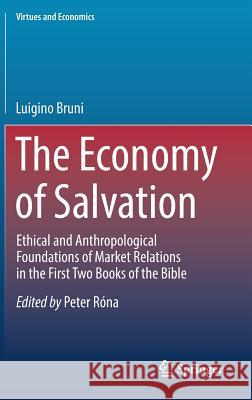The Economy of Salvation: Ethical and Anthropological Foundations of Market Relations in the First Two Books of the Bible » książka
topmenu
The Economy of Salvation: Ethical and Anthropological Foundations of Market Relations in the First Two Books of the Bible
ISBN-13: 9783030040819 / Angielski / Twarda / 2019 / 187 str.
The Economy of Salvation: Ethical and Anthropological Foundations of Market Relations in the First Two Books of the Bible
ISBN-13: 9783030040819 / Angielski / Twarda / 2019 / 187 str.
cena 441,75
(netto: 420,71 VAT: 5%)
Najniższa cena z 30 dni: 424,07
(netto: 420,71 VAT: 5%)
Najniższa cena z 30 dni: 424,07
Termin realizacji zamówienia:
ok. 22 dni roboczych
Dostawa w 2026 r.
ok. 22 dni roboczych
Dostawa w 2026 r.
Darmowa dostawa!
Kategorie:
Kategorie BISAC:
Wydawca:
Springer
Seria wydawnicza:
Język:
Angielski
ISBN-13:
9783030040819
Rok wydania:
2019
Wydanie:
2019
Ilość stron:
187
Waga:
0.48 kg
Wymiary:
23.5 x 15.5
Oprawa:
Twarda
Wolumenów:
01











